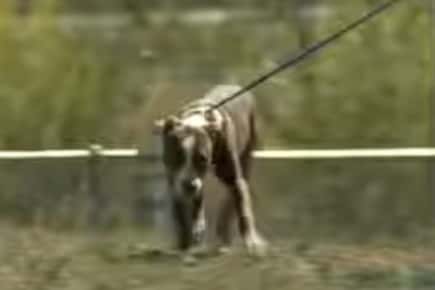
Each year almost 5 million dog bites are reported across North America and it is a rare evening on the nightly news when a dog attack is not reported. Yet, according to the Bureau of Labor Statistics, veterinarians and their staff make up a very small percentage of those bites in spite of their obvious risk factors. What can we learn from them to avoid being bitten by a dog?
According to veterinarian and behaviorist, Dr. Kersti Seksel, being aware of a dog's warning signs can help people avoid the dog's teeth. Almost everyone is aware that a growling dog who is baring his teeth is aggressive and likely to bite, but other warning signs might be less obvious and include raised hackles, overall tenseness, and even a slowly wagging tail. It would appear that veterinarians, veterinary technicians, and other veterinary personnel have learned to quickly read the dog's body language and adjust their movements and actions accordingly.
But not all dogs will read from the same book. Some pets have been punished for growling or snarling and therefore may provide little to no warning before lashing out at someone.
Prospective dog owners should research their desired breed and then take the time and effort to attend puppy socialization classes and even obedience training. If you have children in your household, their education should also be considered. Young children, especially young boys, should be taught never to approach a strange dog. Additionally, if the behavior of the dog seems to be unusual, teach children to stand still, keeping eyes downcast, and to remain quiet. Children should never run towards an unknown dog, even if the owner is present. Teaching children to ask an owner about petting a new dog can be a big step in avoiding potential dog bite situations.
For more information about avoiding dog bites, contact us about appropriate dog breeds and effective dog training.
